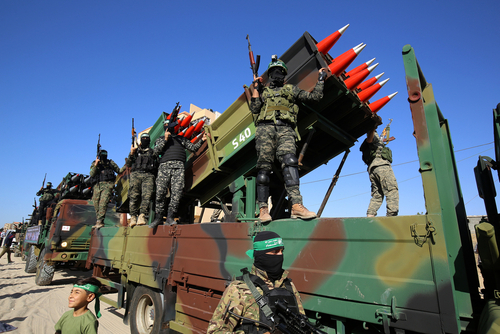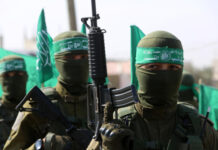
The tragic incident at the al-Ahli Hospital in Gaza City on October 17 sent shockwaves around the world. The hospital, which was providing shelter and medical aid to thousands of civilians amidst the ongoing conflict, got hit by a massive explosion that resulted in the loss of at least 500 innocent lives.
The Israeli military has been quick to deny responsibility for the attack, asserting it was targeting Hamas hideouts and command centers. They argue the explosion was likely caused by a failed rocket launch by Islamic Jihad, a militant group operating within Gaza.
This claim, however, has done little to quell the international outcry over the incident.
🇵🇸🇮🇱 #BREAKING: The Director of The Al-Ahli National Baptist Hospital in Gaza Delivers A Speech Surrounded By Dead Bodies.
“The IDF told us, ‘we warned you yesterday with two bombs.
So why have you not evacuated the hospital until this moment?” pic.twitter.com/yaLGVNmHjR
— Censored Men (@CensoredMen) October 17, 2023
In the aftermath of the explosion, US Secretary of State Antony Blinken held talks with Israel’s emergency national security cabinet. The discussions were aimed at facilitating the entry of aid convoys into Gaza through the Rafah crossing. However, as of late Tuesday, no agreement had been reached.
The United Nations agency supporting Palestinian refugees reported that six people were killed when one of its schools sheltering displaced families was hit during Israeli airstrikes. Philippe Lazzarini, UNRWA commissioner-general, condemned the bombing as ‘outrageous’ and warned that the death toll would likely rise.
🇮🇱🇵🇸 A popular Israeli Telegram channel with 85,000 subscribers is celebrating Israel’s bombing of the Gaza Baptist hospital!
They posted a photo of one of the 500+ dead civilians, writing “Great picture, although I'm missing some ketchup and corpses.” pic.twitter.com/J3Zf0RbAos
— Jackson Hinkle 🇺🇸 (@jacksonhinklle) October 18, 2023
The situation in Gaza is dire. Hospitals are on the brink of losing electricity, threatening the lives of thousands of patients.
Over 400,000 displaced people are crowded into schools and other facilities in the south. Despite these challenges, negotiations for the delivery of aid continue to be fraught with difficulties.
Israel insists on searching all aid deliveries to ensure they do not benefit Hamas. Egypt has proposed the UN oversee the entire process, including inside Gaza. However, both Hamas and Israel cast doubt on an immediate opening, stating they were unaware of any agreement.
The tragedy at the al-Ahli Hospital is a stark reminder of the complexities and challenges of war. It underscores the urgent need for a peaceful resolution to the conflict, one that prioritizes the safety and well-being of innocent civilians caught in the crossfire.












